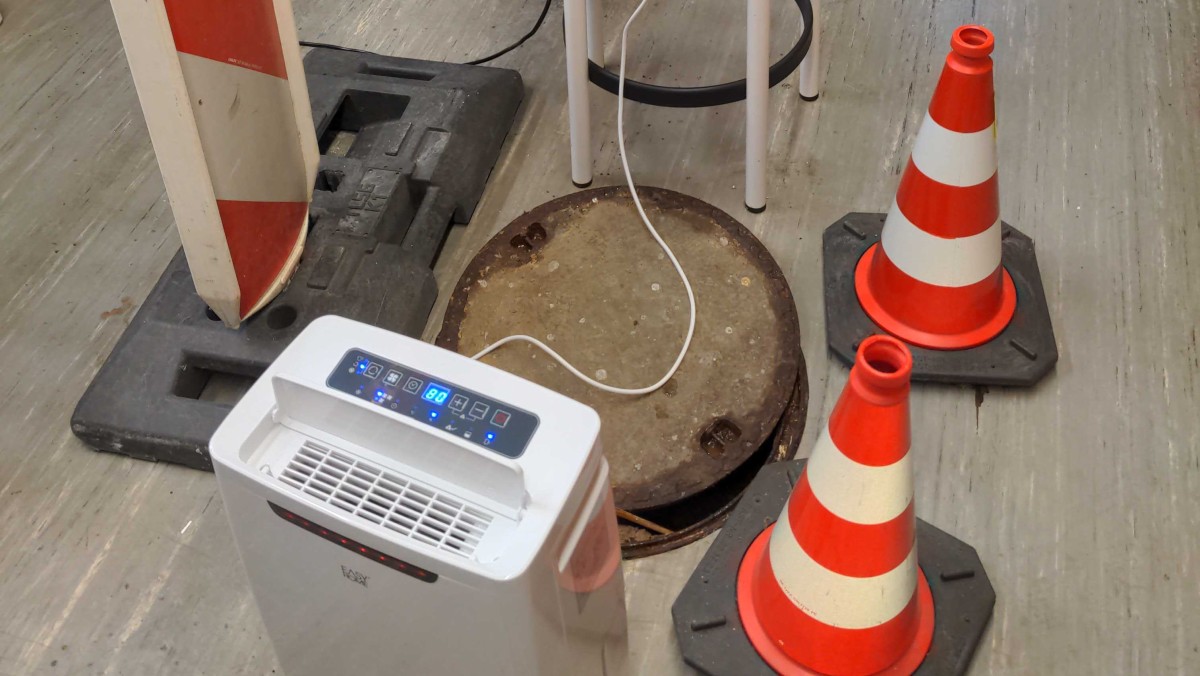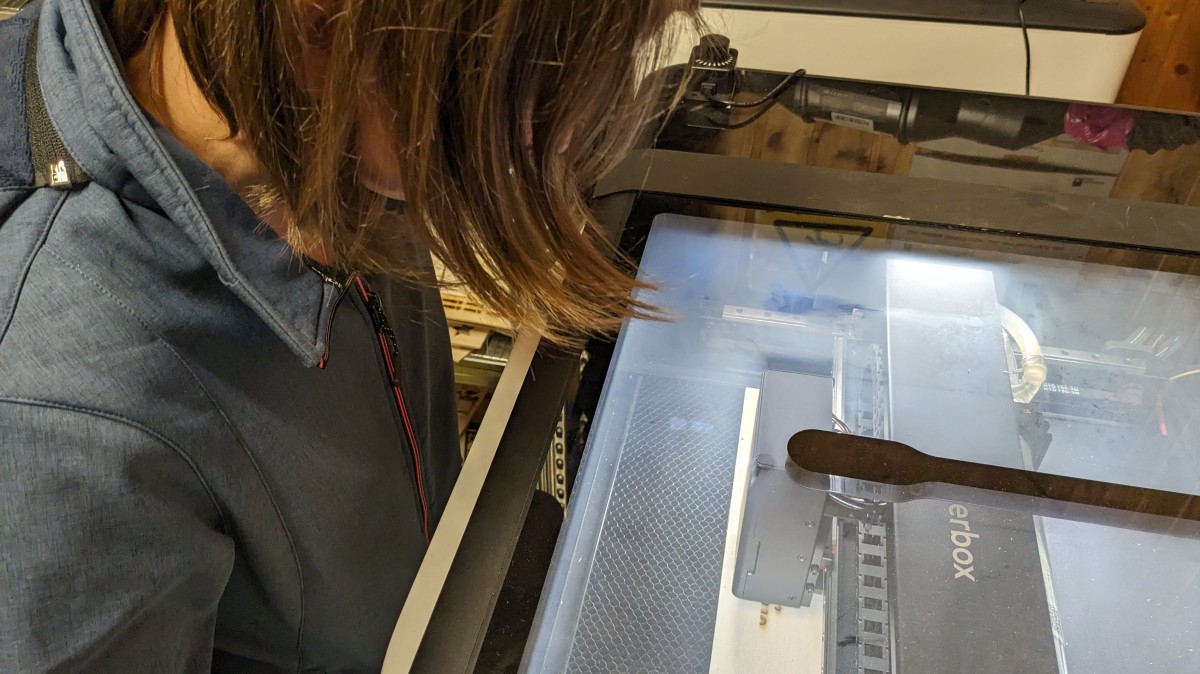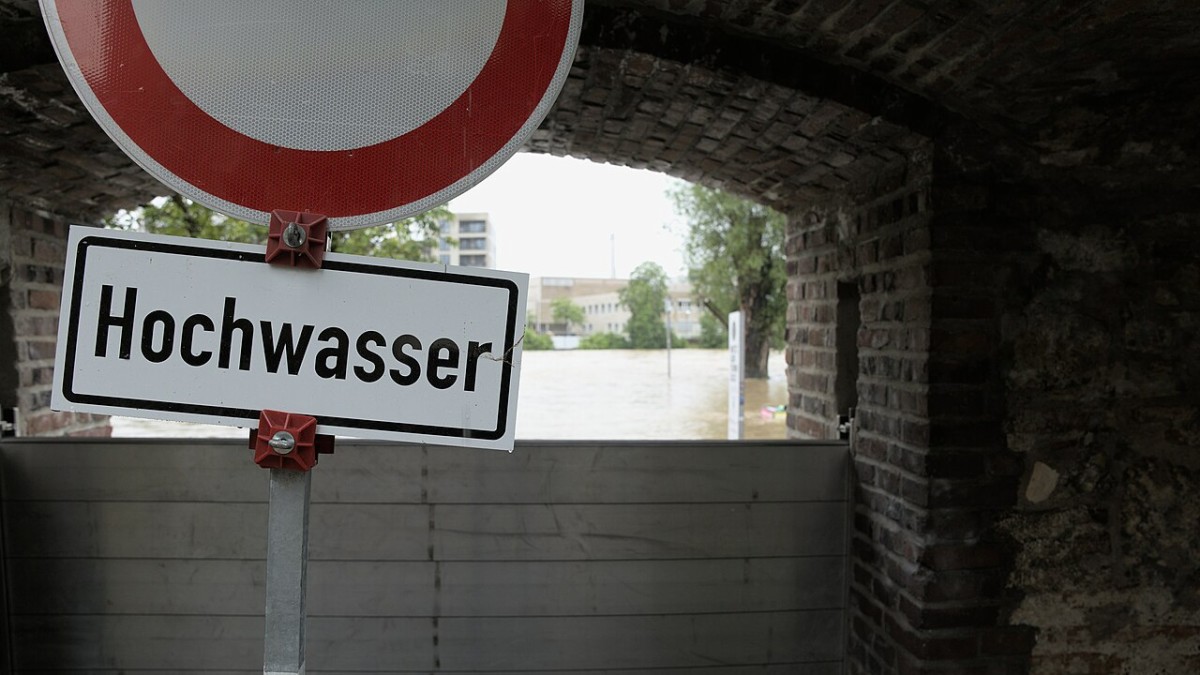June began with a heap of warnings from the German Weather Service and the Bavarian Flood Information Service: Heavy rain was forecast and significant flooding was also expected for the Iller and Danube.
With several instances of water damage caused by heavy rain last year in mind, we began to take precautions. We had to check the drains around the building and the downpipes on the canopy in order to make sure that even a heavy downpour could drain away well. At the same time, we monitored the level of the Iller at the Kempten gauge, which would also affect the level of the Danube with a few hours’ delay.
During the hundred-year flood (of which we have experienced several in the region since then) in 1999, Neu-Ulm city center was spectacularly flooded. Since then, both cities have implemented comprehensive flood protection measures, including mobile levees, so that according to the Bavarian forecast maps a hundred-year flood would be unlikely to affect our house, which is operated jointly with the Haus der Nachhaltigkeit. However, according to the forecast, in case of extreme flooding exceeding the hundred-year-flood mark, we would have been right in the middle of it. So we had to check the basement and make sure that, if the worst came to the worst, there was nothing on the floor that would be spoiled by water, or could contaminate the water.
In the end, unlike the south-eastern district of Neu-Ulm, the city did not experience extreme flooding and the measures were sufficient. Nevertheless, it still looked spectacular in the town. We were out and about with our camera and documented the situation on June 1 comprehensively for Wikimedia Commons. Our images can be viewed in the categories June 2024 floods in Ulm and June 2024 floods in Neu-Ulm and may be reused under the terms of the Creative Commons license. Immediately afterwards, one of the photos was also one of the first images in the Wikipedia article on the floods in southern Germany in 2024 (diff).

The floods still hit us in the end. The Bavarian HND also measures the groundwater level at various measuring points, and it rose very rapidly as the flood crests of the Iller and Danube passed through. And so the water also slowly sept in at the lowest point in our basement. The area was cordoned off very professionally using equipment from our mini construction depot and the water was subsequently pumped out. For a few weeks afterwards, the drying equipment already familiar from last year’s water damage had to suck the residual moisture out of the basement.
Our regular activities
In addition to all the immediate danger prevention, our regular program naturally continued, to which we were once again able to welcome well over 100 people in June.

As usual, we had two open Maker Mondays with an open wood and metal workshop. The RAD-ikal technisch event once again focused on technical tools to promote cycling in the twin city, together with the ADFC. The Live let’s plays are now saying goodbye for the summer break, but still took place once a week with four editions in June. The core program still includes the bi-weekly evenings around The Things Network/LoRaWAN, which also opened our electronics workshop twice in June for all interested people. The CTF/PPP group met twice and is also increasingly appealing to young people who want to immerse themselves in the world of playful computer security. At the Sewing Café, visitors once again repaired the clothes they had brought with them or re-sewed summer items to suit the season. The F.U.C.K. group had two meetings in June for all non-male people who want to get involved with IT, and the Jugend hackt Lab once again offered its monthly meeting point for all young people who want to gain access to IT and free knowledge in a fun way. Free knowledge was also the focus of the third quarter of Wiki loves Basketball, where local activists created machine-readable access to the master data of basketball players in the semantic knowledge database Wikidata.

Like almost every month, there were a lot of caretaking tasks in June. The wood workshop, for example, is currently evolving from week to week, as the rather temporary initial set-up immediately after moving in is now gradually giving way to a more well-thought-out layout, which will also make the newly acquired machines easier to use. At the same time, we are systematically going through the stock that has grown over the years, and mark the equipment and tools that seem to be of little use to our workshop.
Things are also progressing in the atelier: Eli has built and tested another printing press. And the ceramics department is also nearing its grand opening. The clay separators have been built and at least temporarily installed, and the kiln has also been set up and is ready for its first tests. So if you haven’t visited us for a while, you should definitely catch up – because there are a lot of changes to discover.
Thanks to everyone who thinks of us
Whether locally or from afar, we are always happy about everyone who thinks of us and supports us. Be it through a regular or individual donation, for example on betterplace or directly, but also by mentions and telling our stories.
Special thanks this month to the multiple mentions on the panel “Caring for our Web – Software Projects as Care Work” at re:publica 2024. There, tante, who was recently a speaker at Denkanstöße 2024 in Ulm, explained from minute 0:50:07 onwards how a city can interfere with volunteering projects with a great deal of force and dominance. From minute 0:53:56, in response to a question from the audience, he briefly explains the story again and calls the city of Ulm’s approach “the best practice for doing it the worst way”—and Franziska Heine from Wikimedia Deutschland makes it clear that Wikimedia supports us at the new location and that the city’s approach is not a good example of how a municipality should deal with the local volunteer community. Thank you very much for these shout-outs—and of course also for the support from Wikimedia Deutschland, which enables us to continue pursuing our original and self-chosen mission!
